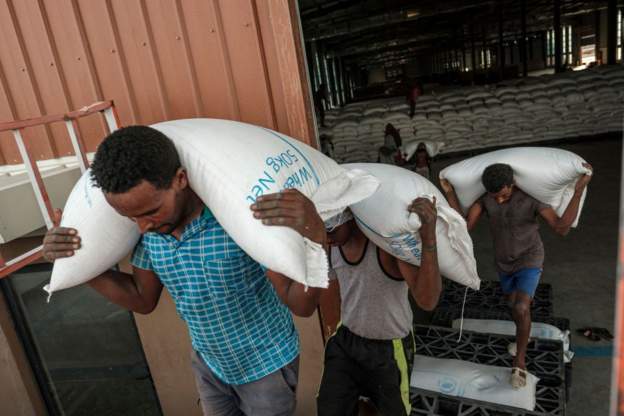Food distribution from international aid agencies working in Ethiopia must be resumed as “malnutrition rates surge”, medical charity Doctors Without Borders (MSF) says.
USAid and the UN World Food Programme (WFP) froze aid to the northern region of Tigray and then to the rest of the country last month after discovering that food shipments were being diverted and sold at local markets.
Tigray suffered from dire shortages of food, fuel, cash and medicines during a brutal two-year conflict between forces loyal to Ethiopia’s government and the Tigray People’s Liberation Front.
In a statement, MSF says that more than 20 million people in Ethiopia rely heavily on food aid and “even before the suspension came into effect our medical teams were witnessing alarmingly high rates of global acute malnutrition”.
“We already see that the food shortage is pushing vulnerable communities into harmful coping mechanisms, including selling assets as substitutes for food, begging, and child labour,” MSF medical coordinator Samreen Hussain said.
“This situation will only worsen with a protracted suspension of food aid.”
